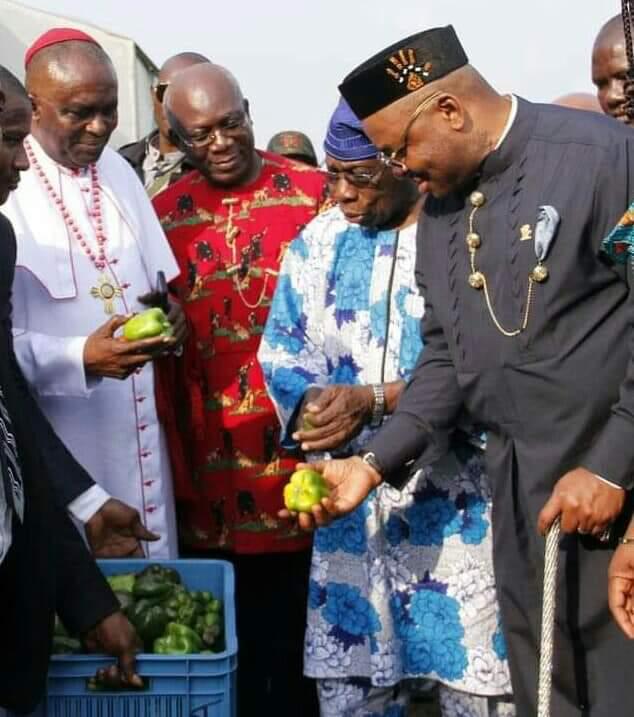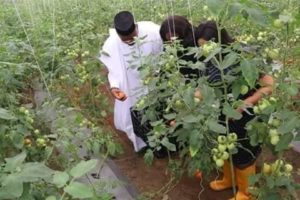
By B.N. Etim
One of several initiatives of Governor Udom Emmanuel administration to ensure food sufficiency and fast track industrialisation – the Green House project – has earned accolades from many farsighted leaders including the former president, Chief Olusegun Obasanjo.
Obasanjo, who stopped by at the facility during his recent visit to the state, acknowledged that Akwa Ibom is making landmark achievements in agricultural production and food sufficiency, adding that if such projects are multiplied across the country, Nigeria will have an edge in food production rather than depend on importation from other countries.
According to him, “Governor Emmanuel should be encouraged. One of the things that pains me is when I hear that most of the vegetables we use in Lagos including tomatoes, carrots, cabbage, lettuce and others are flown in from other countries.”
“The land of those countries are not more fertile than ours that they should export vegetables to us. So what the Governor is doing here is very good and others should do the same”.
 Governor Udom Emmanuel and Wife, Martha, inspecting tomato greenhouse farm in Okobo.
Governor Udom Emmanuel and Wife, Martha, inspecting tomato greenhouse farm in Okobo.
What the former president saw was a bit of the huge investments made by the Governor Udom Emmanuel administration in repositioning agriculture to attain food sufficiency, sustainable development and wealth creation in the state. This initiative is part of Emmanuel’s determined effort to provide alternative source of revenue for the state.
The aggressive reforms in agriculture undertaken by the administration have recorded successes in the area of cassava value-chain and mega garri processing factories, cocoa resuscitation programme, vegetable green house and others. Other mega projects with equally high return on investment are the fully operational Akwa Prime poultry and hatchery, the cassava plantation project championed by FEYReP – a pet project of the wife of the governor, Martha Udom Emmanuel, vegetable farming, proposed tomato processing plant, coconut plantation and refinery project. All these are tailored to radically shoot up the state’s internally generated revenue and secure its self sustenance.
Explaining the vision that drives his passion for agriculture during a 2-day inter-agency parley on agriculture held recently, Governor Emmanuel said the premium placed on agriculture by his administration is due to its high investment potentials and the derivable benefits in industrialisation and wealth creation.
He said that with the dwindling revenue from crude oil, the state government is adopting proactive measures to reduce dependence on oil derivation through massive agricultural development and state-wide agricultural schemes.
The administration anchors its agric policy on the fact that the state is blessed with a fertile soil which supports rich vegetation and a favorable weather all the year round. The governor believes that eighty percent of what is consumed within the state should be produced in the state. And, based on his estimation, if every individual should invest in any aspect of agriculture the state would in no distant time become a haven to investors while the farmers would control a chunk of the state’s wealth.
Thus, his agricultural policy intends to capture the entire state, from townships to rural communities and farmsteads, since the weather is suitable for all season cultivation and all the local government areas have comparative advantage in various crops based on their soil adaptability for cultivation.















